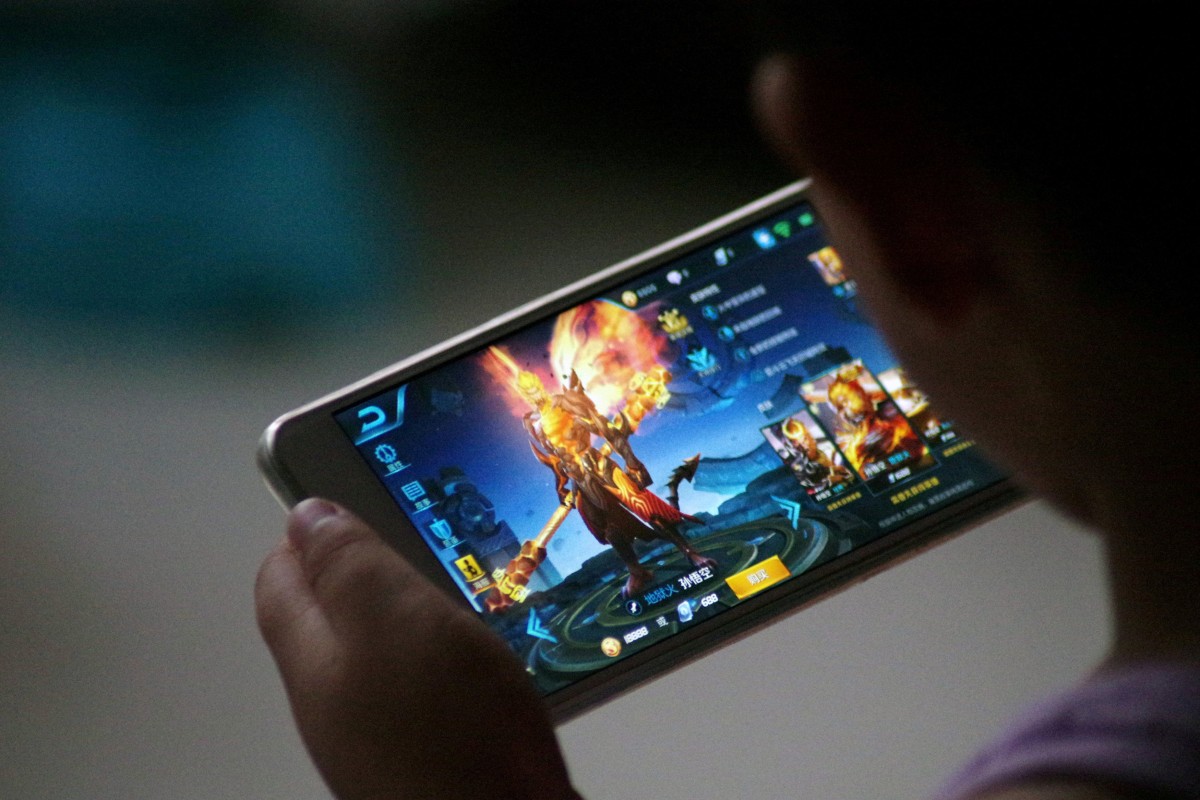
‘I wanted to cry’, say China’s youth frustrated and angry at gaming restrictions
- An edict by China’s internet giant Tencent means players under 12 can no longer make in-game purchases in multiplayer battle smash-hit “honour of Kings”
- Under-18s are locked out after two hours during holidays and one hour on school nights
 A child plays the game “Honour of Kings” by Tencent at home in China. Photo: Reuters
A child plays the game “Honour of Kings” by Tencent at home in China. Photo: ReutersIt is Zhang Yuchen’s last summer break before high school, but events have taken an unwelcome turn – the 14-year-old’s game time has been decimated as China’s tech firms try to dispel accusations that they are selling “spiritual opium” to the country’s youth.
An edict by gaming giant Tencent means players under 12 can no longer make in-game purchases in multiplayer battle smash-hit “honour of Kings”, while under-18s are locked out after two hours during holidays and one hour on school nights.
Japanese teen plans lawsuit over video game regulations
“I wanted to cry,” an anguished Zhang said as the news ricocheted across the world’s largest gaming market, which soaked up $20 billion in the first half of this year alone.
“Limiting game time over the holidays means I cannot play (Honour of Kings) to my heart’s content,” he said.
Gaming appears to be the latest target for regulators who have already strafed mega-apps providing ride-hailing, personal finance and online learning, as the Communist Party refines the type of capitalism it wants for society.
State media reports have singled out gaming, with one article calling it “spiritual opium” and another advocating an end to tax breaks for the sector.
Investors rushed to sell shares in Tencent and rivals NetEase, XD Inc and Bilibili, despite China’s place as the world’s biggest gaming market.
In reaction, Tencent this month dropped the bombshell curbs on play time, an early sign of broader industry changes to come.
Minors complain that the measures are too sweeping, affecting even teens who have finished their university entrance exams and just want to relax.
“I’m on holiday now and have nothing to do, but I can only play for a short while,” said a 17-year-old student surnamed Li.
“It’s quite upsetting,” she added, noting that older teens have more self-control and should not be forcibly stopped from playing.
She gets automatically locked out after hitting the two-hour holiday limit.
But there are loopholes even with broader curbs, Li added, as playing an hour on different games could still lead to teens gaming for the same hours as before.
Others have circumvented the policy altogether, by borrowing an adult’s account or using their parents’ mobile phones.
“By borrowing an account now, I can play two to three hours a day and of course, game after 10pm,” said another 17-year-old student on condition of anonymity.
To get ahead of public criticism, however, Yin believes other gaming companies is likely to roll out their own plans to restrict minors from playing and spending money inside games.
For now, Tencent’s gaming curbs have claimed unlikely victims – with some parents who game with their children also locked out.
Programmer Peng Jianfei said his 12-year-old son was using his account to play “honour of Kings” while on summer break when an authentication prompt appeared and the boy entered his own ID number, triggering a block.
“I think such measures can, to an extent, reduce minors’ gaming time,” the 45-year-old said.